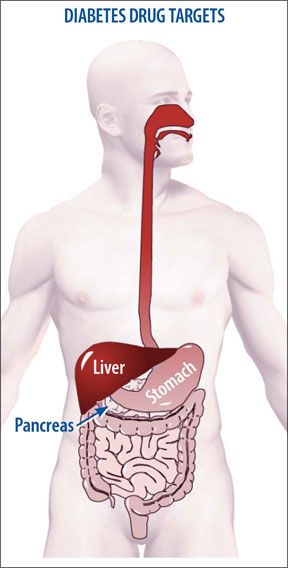The number of Americans being treated for diabetes has risen sharply in the last decade-from around 11 million in 2000 to more than 23 million, according to the American Diabetes Association (ADA). And its a major risk factor for heart problems, says Betul Hatipoglu, MD, staff endocrinologist at Cleveland Clinics department of endocrinology, diabetes and metabolism. "It accelerates atherosclerosis, where fatty deposits build up in the arteries and impede blood flow, and raise the risk of blood clots." Many diabetics rely on medications to control their blood sugar levels-and theres a wide range of newer options. Diabetes affects the bodys ability to metabolize sugar. In type-1 diabetes, the pancreas produces little or no insulin (the hormone that regulates the absorption of sugar from the bloodstream into the cells); in type-2 (which most often affects adults), the body is resistant to the effects of insulin. In both types, sugar builds up in the bloodstream, damaging the blood vessels by altering their structure and function, and making it easier for cholesterol and fatty plaque to build up. The fact that the effects of diabetes can go way beyond the inconvenience of daily meds and insulin injections makes finding more effective treatments vital. "Diabetes is very complex, and its important to have agents available to treat the disease from different aspects," says Dr. Hatipoglu. The quest has led to the development of innovative new medications, both oral and injectable. "They have different mechanisms and, used correctly, can complement each other," Dr. Hatipoglu adds.
To continue reading this article or issue you must be a paid subscriber.
Sign in






